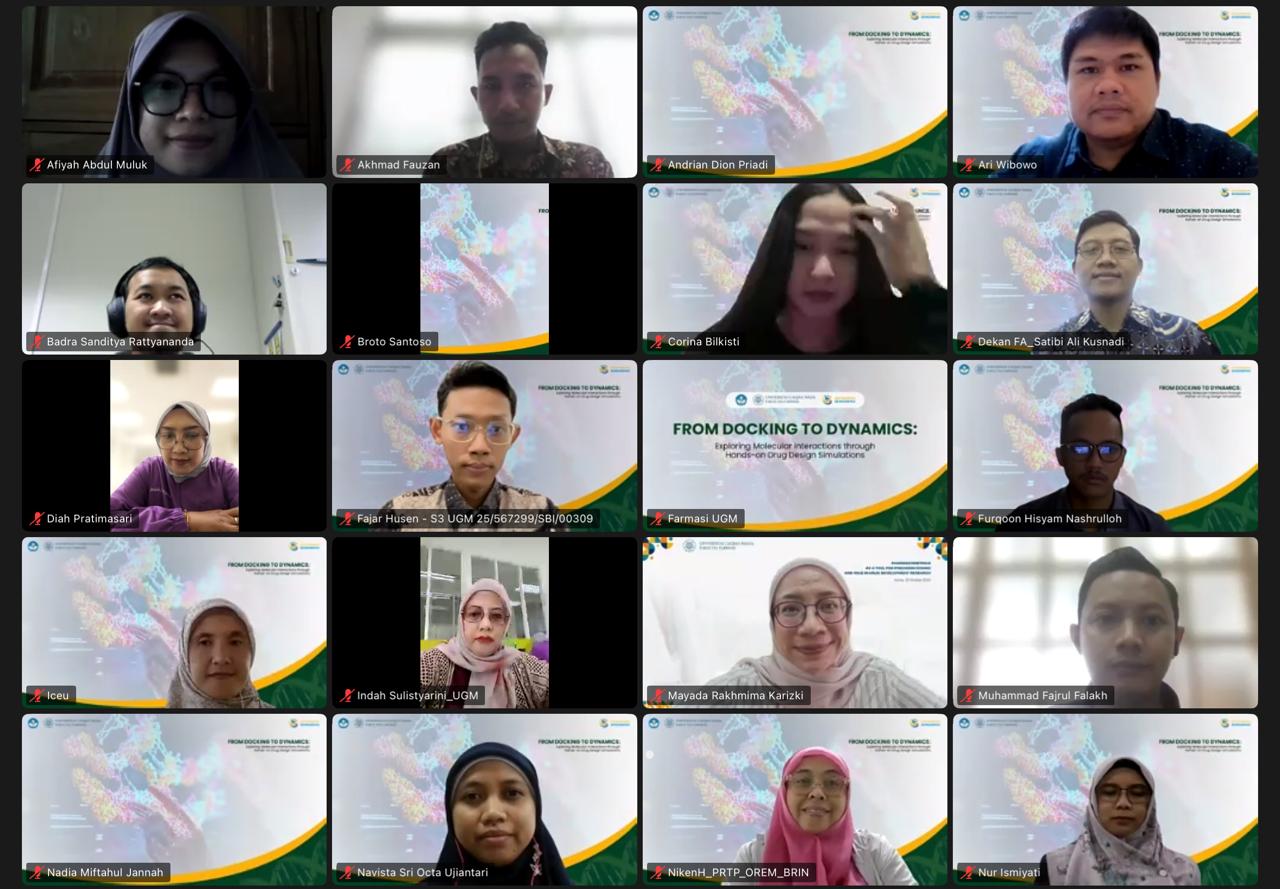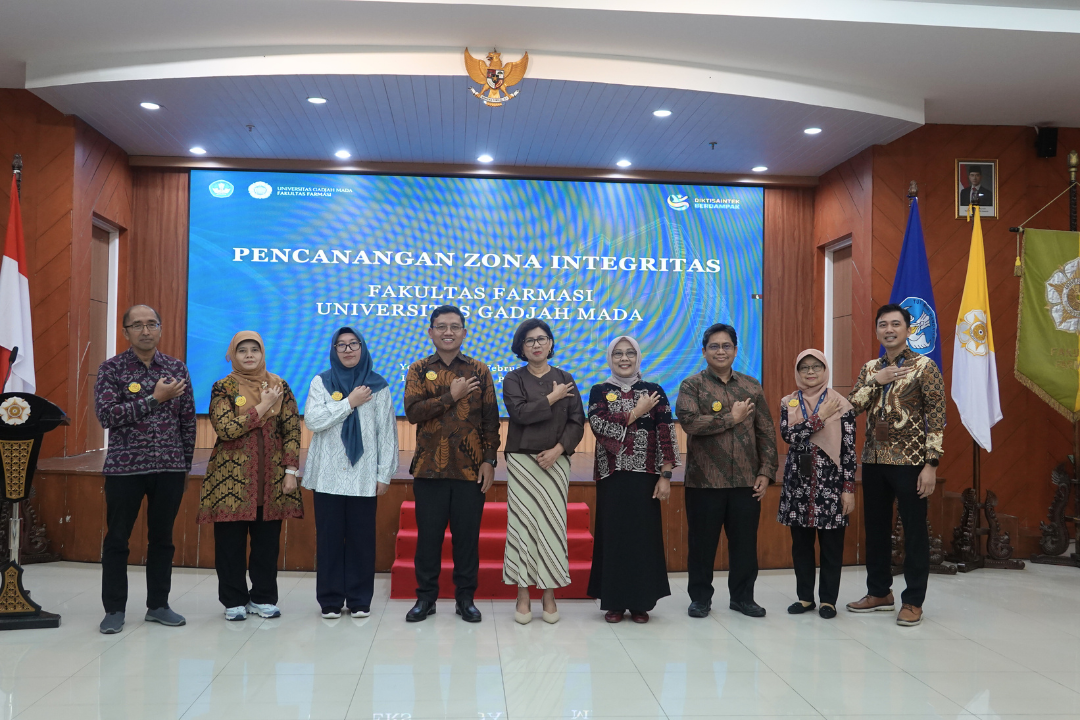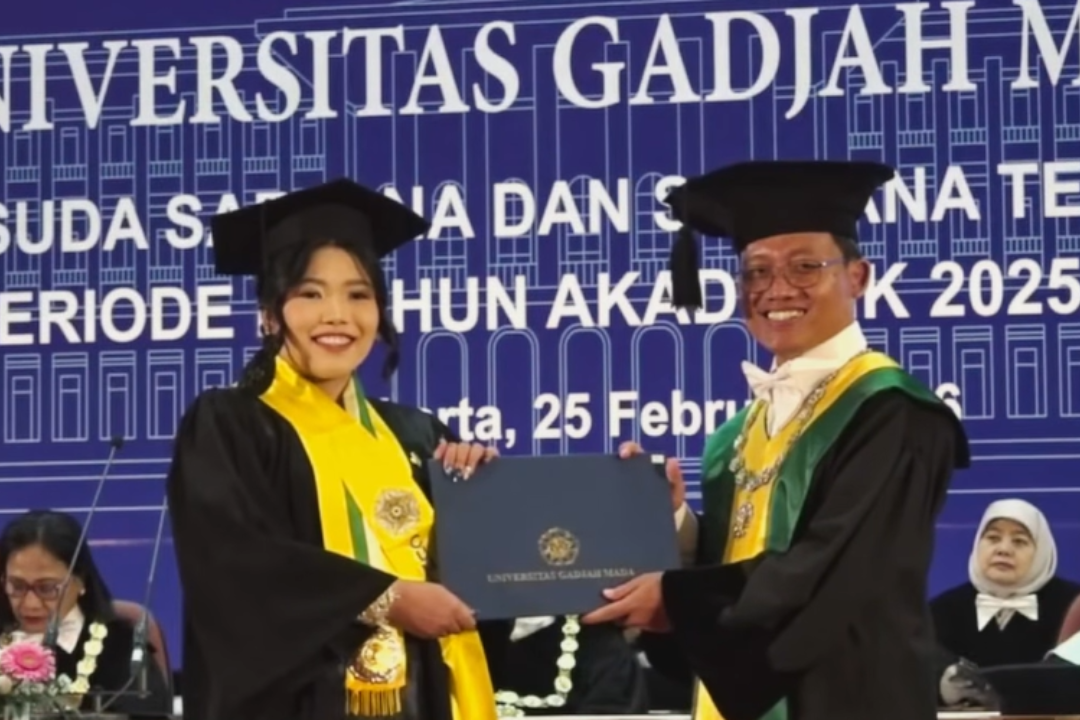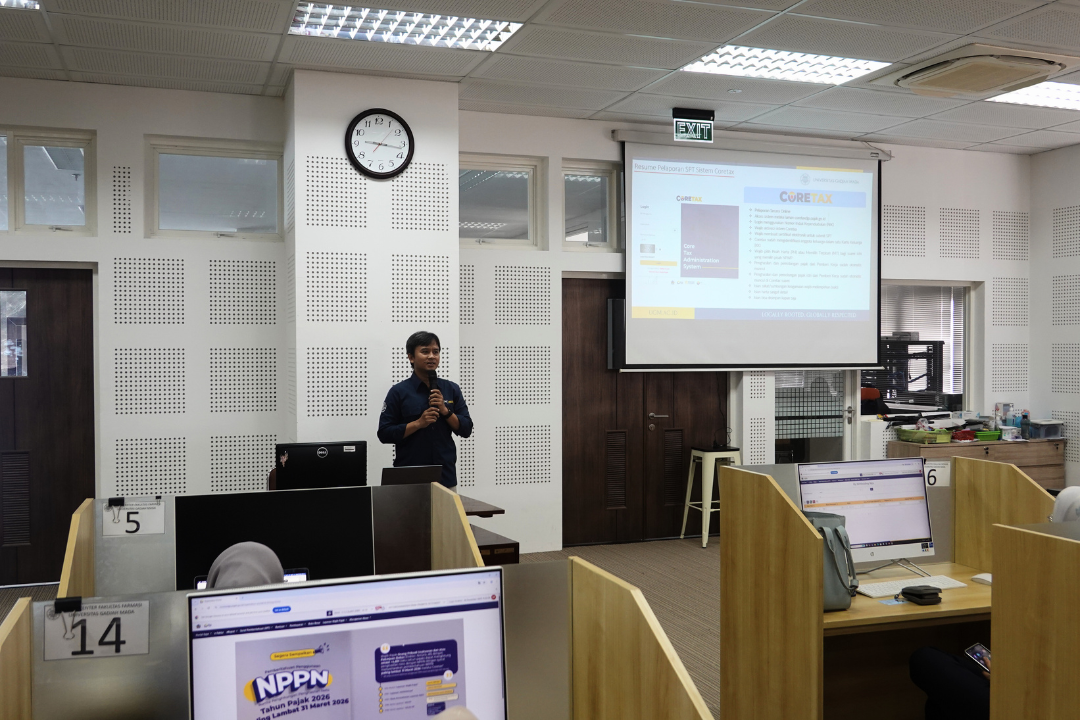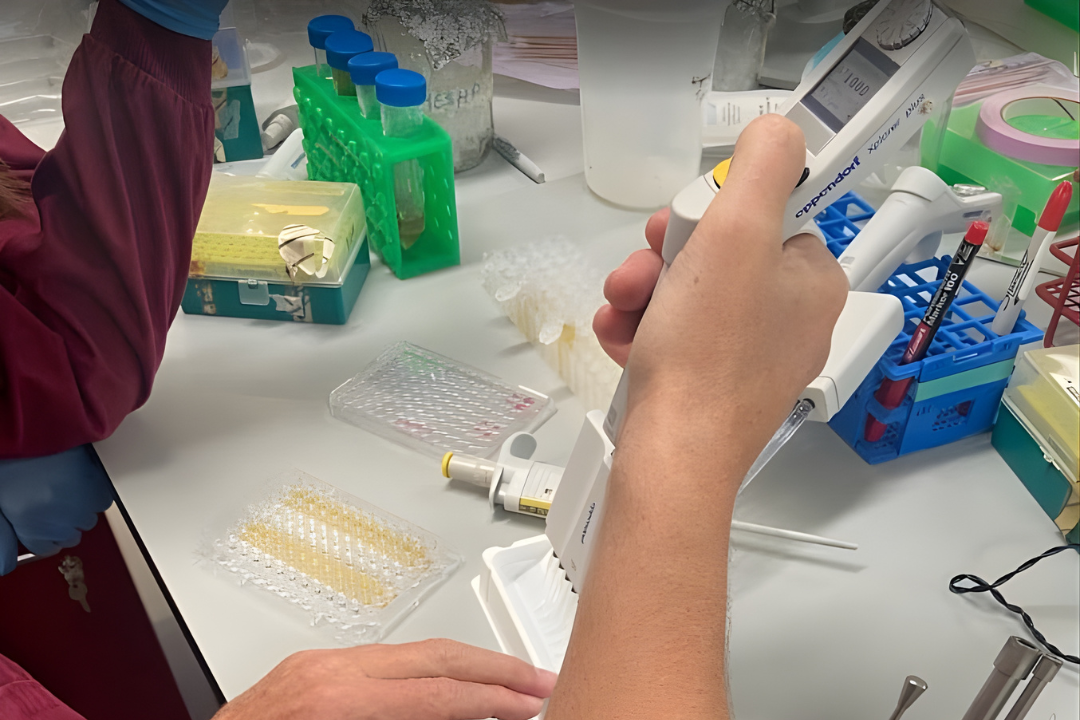Yogyakarta, 19 November 2025 – The Faculty of Pharmacy, Universitas Gadjah Mada, reaffirmed its commitment to strengthening research capacity and computational literacy among its academic community through the organization of a training program on Molecular Docking and Molecular Dynamics Simulation. The program consists of two sessions: the first is an online theoretical webinar held via Zoom Meeting, and the second is an on-site hands-on workshop scheduled to take place at the UGM Faculty of Pharmacy on 4 December 2025.
In silico approaches have increasingly become a strategic pillar in drug discovery and development, particularly through two key methods: molecular docking, which predicts the orientation and binding affinity of ligand–receptor interactions, and molecular dynamics (MD) simulation, which offers dynamic insights into the stability of molecular complexes under specific environmental conditions. By integrating these methods, researchers can gain a more comprehensive understanding of drug mechanisms of action, improve the efficiency of candidate screening, and strengthen structure-based drug design approaches.
During the training, participants received theoretical materials delivered by two experts in computational chemistry and bioinformatics. Apt. Navista Sri Octa U., M.Sc., Ph.D., presented the Molecular Docking Theory session, covering fundamental concepts, ligand–receptor interaction mechanisms, docking scoring parameters, as well as workflows for compound selection and screening. Meanwhile, Badra Sanditya Rattyananda, S.T., M.Si., delivered an in-depth presentation on Molecular Dynamics Simulation Theory, explaining the principles of molecular dynamics, simulation parameters, complex stability analyses, and the interpretation of atomic-scale simulation results.
The training also facilitated active discussions and interactions among researchers, opening opportunities for scientific collaboration and knowledge exchange in the development of computational methods for computer-aided drug design (CADD). Participants included academics, researchers, and final-year students with interests in molecular modeling and bioinformatics technologies, reflecting strong enthusiasm for the use of computational simulation in modern health research.
This activity also contributes to the achievement of the Sustainable Development Goals (SDGs) by strengthening Quality Education (SDG 4), advancing technology-driven innovative research (SDG 9: Industry, Innovation, and Infrastructure), and supporting efforts to develop more effective and safer therapies (SDG 3: Good Health and Well-being).
Through this workshop, the UGM Faculty of Pharmacy hopes that more researchers will be able to utilize advanced computational technologies to accelerate innovation in drug discovery, while also enhancing Indonesia’s research competitiveness on the global stage.

